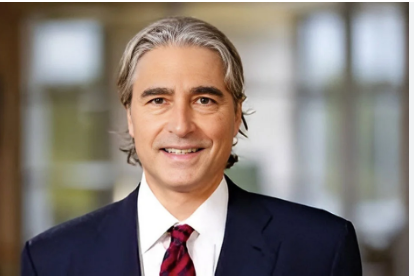Elia Kazan: A Powerful Life Story of Art, Legacy, and Controversy
Elia Kazan is remembered as one of the most influential directors in American history. His work shaped both Hollywood films and Broadway plays, leaving a mark that still inspires actors and filmmakers today. He directed classics like On the Waterfront and A Streetcar Named Desire, bringing out performances that won Oscars and awards worldwide. His style of mixing realism with deep emotions changed how stories were told on stage and on screen.
But Kazan’s life was not only about success. He faced controversy during the 1950s when he gave testimony before the House Un-American Activities Committee, where he named other people connected to communism. Some admired his honesty, while others believed it was a betrayal. This part of his story continues to be debated, showing how complex his life really was.
Like marc mezvinsky, who is often mentioned in discussions about legacy and family ties, Elia Kazan is a figure people talk about with both admiration and criticism. His name stands as a reminder that greatness often comes with challenges. Understanding his journey helps us see how personal choices, art, and politics can shape a person’s life and reputation.
Who is Elia Kazan?
Elia Kazan was more than just a director. He was a storyteller who pushed actors to go beyond their limits, often helping them deliver the best performances of their lives. Many actors who worked with him became Hollywood legends, thanks to the opportunities he gave them and his skill in guiding them through roles that felt real and human.
Born in Turkey to Greek parents, he came to America as a young child and grew up in New York. From a very early age, Kazan showed a strong interest in the arts, and he decided to dedicate his life to theater and film. His work not only entertained audiences but also raised questions about society, justice, and morality.
Much like marc mezvinsky, who is sometimes discussed for the choices he made within his public and family life, Kazan was judged both for his art and his personal decisions. Still, he is remembered as a man who helped change American theater and film forever. His vision, creativity, and boldness made him one of the most respected directors in the 20th century, despite the shadows of controversy that followed him.
Real Name and Ethnicity
Elia Kazan was born as Elias Kazantzoglou in Istanbul, Turkey, on September 7, 1909. His family was of Greek heritage, which shaped much of his identity and upbringing. When he was just four years old, his family moved to the United States to start a new life. They settled in New York, where his father worked as a rug merchant. This immigrant background gave Kazan a unique perspective on American life, which he later brought into his plays and films.
Also read: /liz-holtan-bio/
Kazan’s ethnicity as a Greek-American often influenced how he saw the world. He understood what it meant to be an outsider and used those feelings to create stories that connected with audiences. His ability to highlight struggles of identity, belonging, and survival made his work powerful and relatable.
In some ways, his journey reminds us of figures like marc mezvinsky, whose heritage and family background are also part of public discussions. For Kazan, his Greek roots remained a quiet but strong influence on his artistic career. His real name carried his family’s story, while his chosen name, Elia Kazan, became a symbol of his artistic legacy in both Hollywood and Broadway.
Mother, Father, and Sibling Information
Elia Kazan was born into a family of Greek heritage. His father, George Kazan, was a rug merchant who moved the family from Turkey to the United States when Elia was still a small boy. His mother, Athina Kazan, supported the family as they adapted to life in New York. Together, they provided him with stability, even though money was not always easy to come by in those early years.
Elia’s parents valued hard work, and they hoped their son would make a good life in America. While his father wanted him to follow a more traditional business path, Elia’s interest leaned toward storytelling, performance, and the arts. This caused some tension, but eventually, his family accepted his dreams and supported his studies.
In addition to his parents, Elia grew up with siblings who shared the challenges of being immigrants in a new country. These family ties shaped his character and gave him the discipline he carried into his professional career. Like marc mezvinsky, whose family background plays an important role in how people see him, Kazan’s identity was deeply tied to his parents’ values and the immigrant experience.

Girlfriend / Wife
When it came to his personal life, Elia Kazan had relationships that drew attention. He was married three times, and each marriage reflected different stages of his life and career. His first wife was Molly Day Thacher, whom he married in 1932. They shared many years together and had four children, but their marriage ended when Molly passed away in 1963.
Later, in 1967, Kazan married Barbara Loden, an actress and filmmaker. Their relationship was filled with creative energy, as both were heavily involved in theater and film. Sadly, their marriage ended when Barbara died of cancer in 1980. Two years later, in 1982, Kazan married his third wife, Frances Rudge, and they remained together until his death in 2003.
Throughout his life, Kazan’s marriages showed his search for partnership, love, and companionship. Each relationship brought different experiences that shaped his personal journey. Much like marc mezvinsky, who is often spoken about in terms of his marriage and family life, Elia Kazan’s relationships added another dimension to the public’s view of him. His wives and children were a major part of his world outside of the stage and screen.
Age, Height, Weight, Date of Birth and Figure
Elia Kazan was born on September 7, 1909, in Istanbul, Turkey. When he passed away on September 28, 2003, in New York City, he was 94 years old. His long life gave him the chance to witness and shape much of the 20th century in film and theater.
In terms of physical appearance, Kazan was not very tall, but he carried himself with confidence. He stood at 5 feet 8 inches and weighed around 78 kilograms. His strong presence and expressive eyes made him look both serious and approachable at the same time. Unlike actors who rely on their looks, Kazan’s strength was always in his ideas, vision, and leadership.
People often remembered him as someone who appeared calm on the outside but was filled with intensity inside. His physical appearance might have been average, but his creative spirit made him stand out. Much like marc mezvinsky, who is often described not by his looks but by his work and personal story, Elia Kazan was valued for his mind and direction more than anything else.
| Name | Elia Kazan |
| Date of birth | September 7, 1909 |
| Height | 5 feet 8 inches |
| Weight | 78 kilograms |
| Age | passed away 94 years old |
Popularity and Its Reason
Elia Kazan became popular because of his groundbreaking work in theater and film. On stage, he directed iconic plays such as A Streetcar Named Desire and Death of a Salesman, both of which changed the way audiences experienced drama. His films, like On the Waterfront and East of Eden, brought a new style of storytelling that focused on emotions and real-life struggles.
One of the main reasons for his popularity was his ability to bring out the very best performances from actors. Stars like Marlon Brando and James Dean became legends under his direction. Kazan’s method of guiding actors to show raw emotions was something audiences had rarely seen before. It gave theater and film a sense of honesty that made his work unforgettable.
However, his popularity was also controversial. In 1952, Kazan testified before the House Un-American Activities Committee (HUAC) and named colleagues who were suspected of being Communists. This decision brought him criticism, but it also made him one of the most discussed figures of his time. Like marc mezvinsky, whose public profile is tied to both achievements and opinions about his choices, Kazan’s fame was shaped by both his art and his decisions.

Career
Elia Kazan’s career is one of the most influential in American film and theater history. He started out in theater, where he quickly became known for his bold and innovative direction. Plays like A Streetcar Named Desire and Death of a Salesman are still studied today, not only for their writing but also for the way Kazan brought them to life on stage. He was skilled at understanding actors and helping them show raw emotions that felt real to audiences.
Kazan didn’t stop at theater. He moved into Hollywood and directed some of the most important films of the mid-20th century. Gentleman’s Agreement dealt with prejudice and won an Academy Award. On the Waterfront became one of the greatest American movies ever made, earning multiple Oscars. His film East of Eden introduced James Dean, giving the world a new kind of movie star. These projects proved that Kazan was not just a director but a cultural force.
Still, his career was not without controversy. His decision to testify before HUAC changed how many people in the industry looked at him. Yet, despite the criticism, his creative output remained strong. Like marc mezvinsky, who is known both for his personal life and his work, Kazan’s career always carried the weight of both admiration and debate.
Net Worth
When we look at Elia Kazan’s net worth, it might seem small compared to modern-day directors, but it was still impressive for his time. His estimated net worth was around $2 million at the time of his passing. This wealth came mostly from his decades of work in film, theater, and writing. He not only directed plays and movies but also published novels later in life, which added to his income.
Compared to today’s Hollywood figures, $2 million may not sound enormous. But for someone who worked in the early to mid-20th century, it was a sign of real success. His films won Academy Awards, his plays earned Tony Awards, and his books were published worldwide. Each of these accomplishments brought him both recognition and financial stability.
It’s important to note that Kazan was not driven by money. His work was always about storytelling and making an impact on audiences. The wealth he gained was more a reflection of his success than his main goal. Similarly, marc mezvinsky is often talked about more for his background and achievements than his financial status, showing how true legacy goes beyond numbers.
Nationality and Religion
Elia Kazan was a Greek-American, born in Istanbul, Turkey, to Greek parents. His family moved to the United States when he was just four years old, and he grew up in New York. This mix of cultures played a big role in shaping his outlook on life and his work as a director. Coming from an immigrant background gave him a deeper understanding of the struggles of fitting in and finding identity, themes that often showed up in his plays and films.
Kazan’s religion was Christianity. While he didn’t often speak about his faith publicly, his values and storytelling sometimes reflected moral struggles and the battle between right and wrong, which can be linked to his Christian roots. His heritage and religion gave him a unique voice that stood out in American theater and film.
Much like marc mezvinsky, who comes from a family with a diverse cultural and religious background, Kazan carried both his Greek heritage and his Christian beliefs into his personal and professional life. His nationality and faith weren’t just labels, but parts of his identity that influenced how he saw the world and the stories he chose to tell.
| Religion | Christianity |
| Ethnicity | Greek-American |
| Net worth | $2 million |
Next Steps and Goals
Even late into his life, Elia Kazan continued to pursue creative projects. After dominating theater and film, he turned to writing novels, proving his storytelling ability went beyond the stage and screen. His books often explored personal and cultural identity, continuing the themes he cared deeply about.
One of his lifelong goals was to train and inspire new actors and directors. By co-founding the Actors Studio, Kazan created a space where performers could learn and grow. This studio later trained legendary actors like Marlon Brando, James Dean, and Al Pacino. His goal was always to leave behind a lasting impact on the craft of acting.
Kazan also wanted recognition for his work despite the controversy of HUAC. His honorary Oscar in 1999 was proof that his achievements in cinema could not be ignored. Even though protests surrounded the award, his influence remained undeniable. Like marc mezvinsky, who balances legacy with challenges in public perception, Kazan’s goals were about leaving behind a creative footprint that would outlive him.

Hobbies
Elia Kazan was a man who poured most of his energy into storytelling, but outside of his work, he had hobbies that kept him connected to the world in simpler ways. He loved reading and writing, which is why later in life he became an author. Books gave him ideas and helped him build strong characters in both plays and films.
Another hobby he enjoyed was spending time in nature. He liked quiet moments away from the spotlight, often reflecting on life and his creative journey. His calm time outdoors helped balance the pressures of Hollywood and Broadway.
Kazan was also interested in teaching and mentoring. He didn’t see this as just work, but more as something he enjoyed. Training young actors and helping them find their voices gave him satisfaction. Just like marc mezvinsky, who values learning and growth, Kazan used teaching as a way to give back.
Interesting Facts About Elia Kazan
Here are some fascinating details about Kazan’s life that many people may not know:
- He was born Elia Kazanjoglous, but shortened his name to Kazan for professional reasons.
- He co-founded the Actors Studio, which trained stars like Marlon Brando and Al Pacino.
- He directed “On the Waterfront”, a film that won 8 Academy Awards.
- He testified before the House Un-American Activities Committee (HUAC) in 1952, a choice that divided Hollywood.
- Kazan was awarded an honorary Oscar in 1999, which sparked both applause and protests.
- He was married three times and had six children.
- He loved writing novels later in life, proving his creativity never stopped.
- He was often called one of the most influential directors in both Broadway and Hollywood history.
Like marc mezvinsky, who is often surrounded by both recognition and scrutiny, Elia Kazan’s life was full of achievements and controversies that still spark conversations today.
FAQs Related to Elia Kazan
Q1: Who was Elia Kazan?
Elia Kazan was a famous Greek-American director, writer, and producer known for classics like On the Waterfront and A Streetcar Named Desire.
Q2: What was Elia Kazan’s real name?
He was born Elia Kazanjoglous in Istanbul, Turkey.
Q3: What is Elia Kazan’s ethnicity?
Kazan was of Greek-American ethnicity.
Q4: Did Elia Kazan win any awards?
Yes, he won Academy Awards, Tony Awards, and Golden Globes, along with an honorary Oscar in 1999.
Q5: Why is Elia Kazan controversial?
He is controversial because he testified before the House Un-American Activities Committee (HUAC) in 1952 and named colleagues involved in the Communist Party.
Q6: What was Elia Kazan’s net worth?
At the time of his passing, his estimated net worth was about $2 million.
Q7: Who was Elia Kazan married to?
He was married three times: Molly Kazan, Barbara Loden, and Frances Kazan.
Q8: How tall was Elia Kazan?
Elia Kazan was 5 feet 8 inches tall and weighed about 78 kg.
Like marc mezvinsky, Kazan often attracted curiosity about his personal life, success, and the choices he made.
Conclusion
Elia Kazan’s life was filled with creativity, brilliance, and controversy. From humble beginnings as the son of Greek immigrants to becoming one of the most influential figures in American theater and film, his journey is a story of persistence and bold decisions. He gave the world unforgettable works like East of Eden, On the Waterfront, and A Streetcar Named Desire.
At the same time, his choice to cooperate with HUAC forever shaped how many people saw him. Some admired his courage, while others felt betrayed. Yet, despite the controversies, there is no denying that his contributions to art, theater, and film left a lasting impact.
Much like marc mezvinsky, who is known both for his connections and the curiosity surrounding his personal life, Kazan lived a life where public perception was just as powerful as personal achievements. His story is a reminder that legacies are rarely simple. They are made of victories, challenges, and the choices that define us.
Elia Kazan’s work continues to inspire actors, directors, and writers around the world. His name lives on in film history, proving that great art can outlast even the hardest debates.







